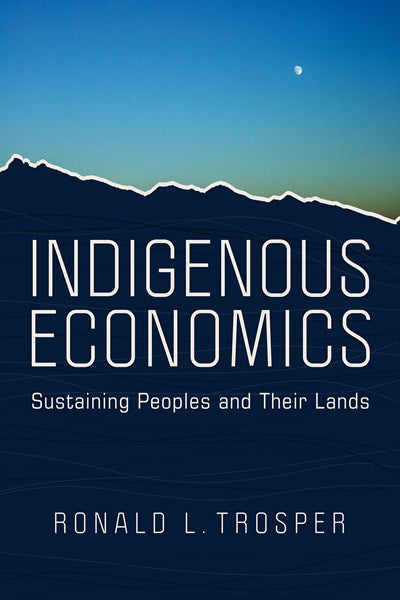“By showing how Indigenous worldviews give rise to an Indigenous economics that is different from the neoclassical standard, Indigenous Economics points to an important alternative path forward for Indigenous peoples’ well-being.”—Miriam Jorgensen, co-editor of Creating Private Sector Economies in Native America: Sustainable Development through Entrepreneurship
“It is becoming clearer and clearer that we need a new economics for the twenty-first century, an economics that transcends the dominant economics built on the cultural presuppositions of the modern West—individualism, hyperrationality, the absence of limits, and the nation-state model of Europe and European settlers in various parts of the world. Ron Trosper steps up to the challenge. What is noteworthy about Indigenous Economics is that it goes beyond theoretical abstraction. Trosper’s proposals for a new economics synthesize theory with his concrete experience as a member of the Confederated Salish and Kootenai Tribes with a fifty-year record of research, teaching, and policy interventions on issues of vital concern to Native Americans in the United States and First Peoples in Canada. This is a book that will engage not only these communities and scholars working with these communities to chart a sustainable future but also a wider community. Anybody concerned with the perilous trajectory of growth without limits will find Indigenous Economics an invaluable guide to thinking about sustainable alternatives.”—Stephen A. Marglin, author of Raising Keynes: A Twenty-First Century General Theory
"In this powerful exploration of Western and Indigenous thought, Trosper challenges the conventional understandings of economic theory to imagine how the relational viewpoints of Indigenous communities can inform more just and sustainable practices and institutions. This book offers a new way of imagining our shared interests in social and environmental goods, one situated within Indigenous, placed-based value systems that honor all aspects of the natural world and the obligations we share with past and future generations. Relationships are omitted from conventional economic theory, but they are fundamental to Indigenous sustainability. This key insight can guide a new era of policy innovation as we manage our current climate crisis."—Rebecca Tsosie, Regents Professor of Law, University of Arizona

